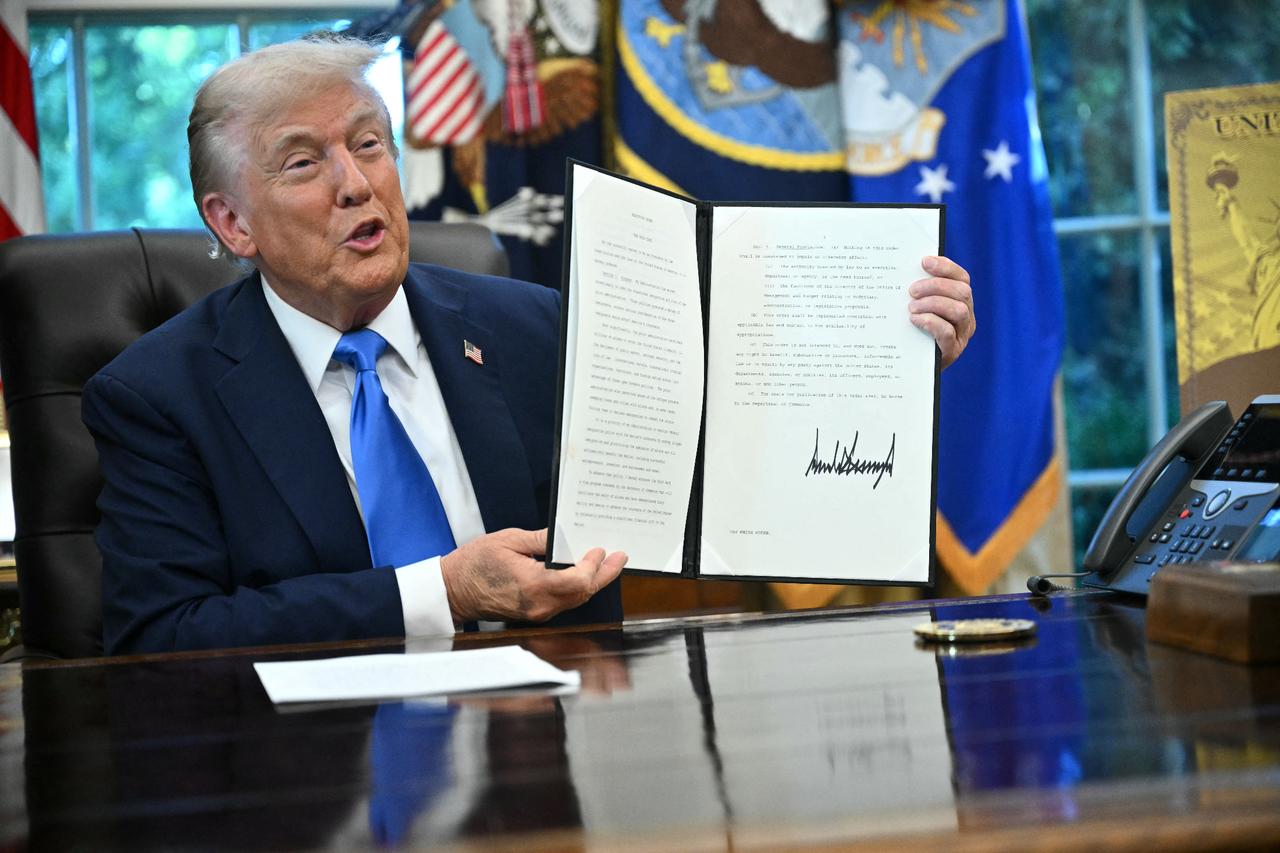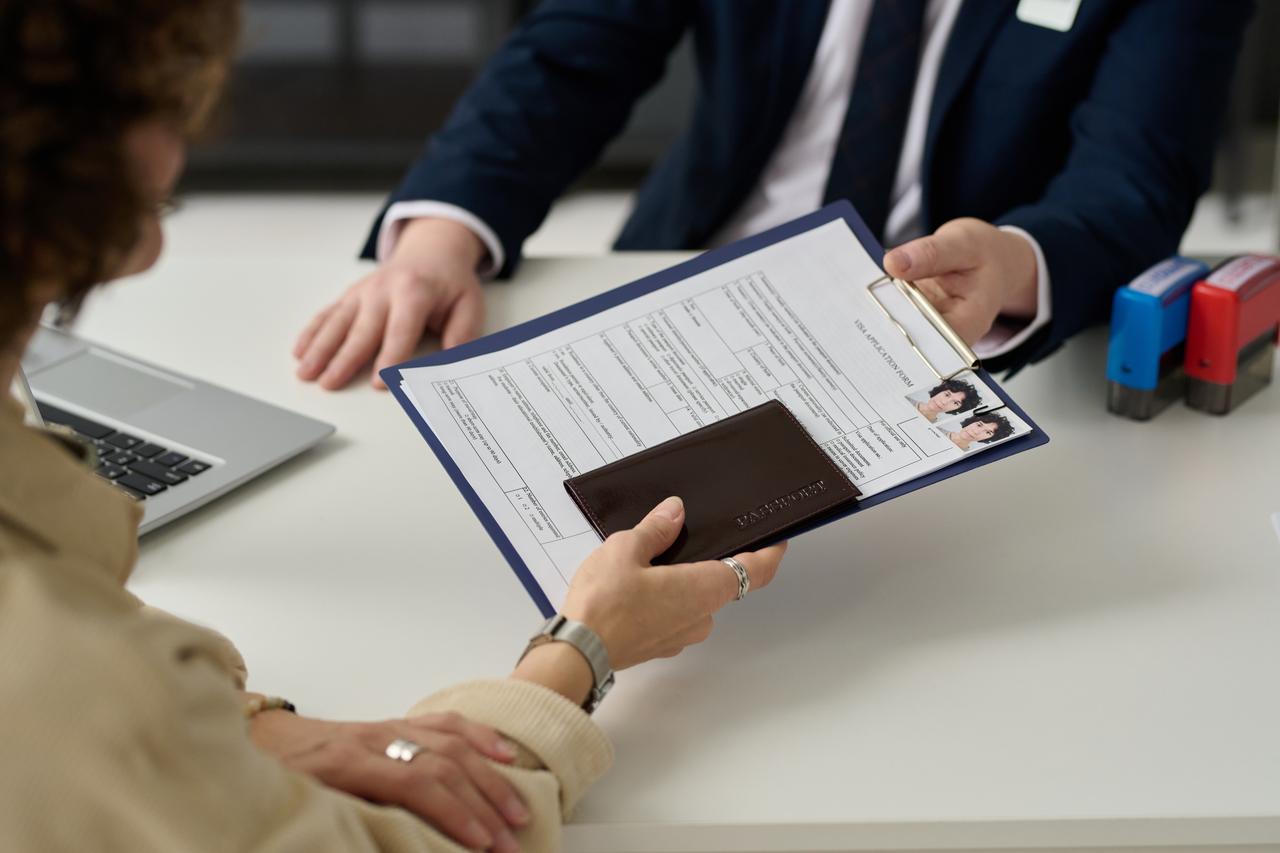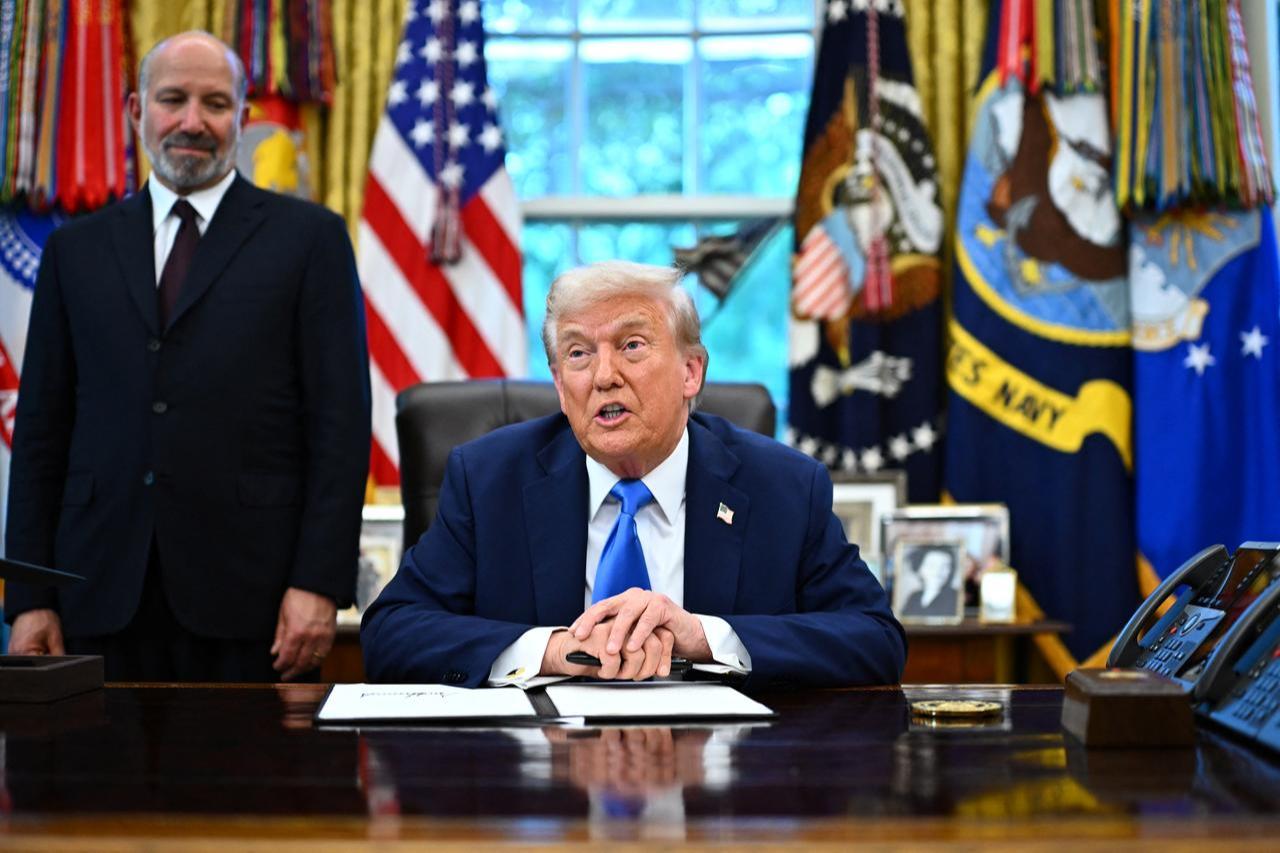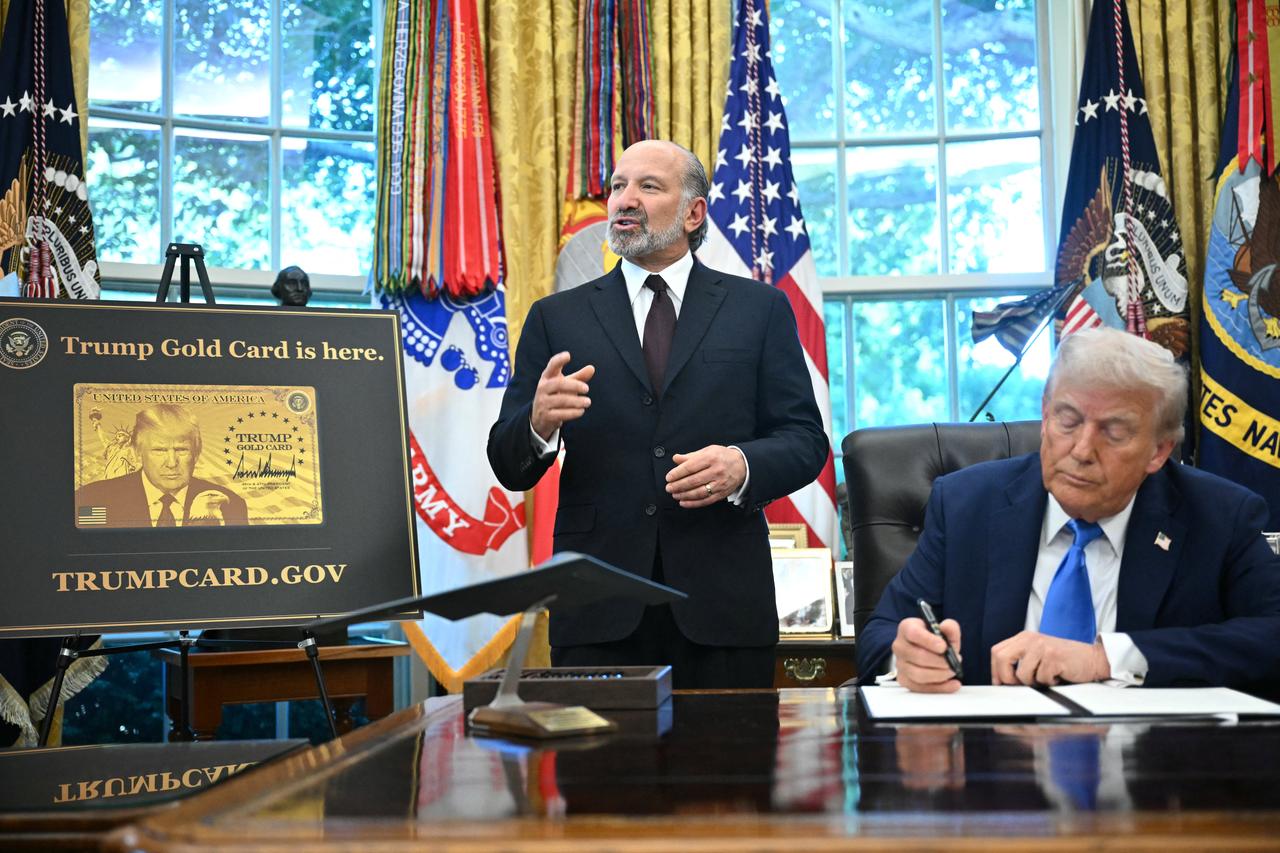
U.S. President Donald Trump on Friday signed new measures that sharply increase the cost of H-1B skilled worker visas and issued an executive order establishing a new "Gold Card" residency program for wealthy foreign nationals.
The move adds financial hurdles for employers that rely on international talent while opening a new pathway for high-value investors.
The measures raise the annual fee for H-1B visas from $1,000 to $100,000, a hundredfold increase. The program, which allows U.S. companies to employ foreign workers in specialized fields such as engineering, computer science, and research, currently admits 85,000 new applicants each year through a lottery system.
Indian and Chinese nationals make up the vast majority of recipients. In 2025, more than 70% of approvals went to applicants from India. The United States approved about 400,000 H-1B visas in 2024, two-thirds of them renewals.
According to U.S. statistics, 1,432 Turkish citizens entered the country under the H-1B program in 2024, and estimates suggest that nearly 50,000 Turkish nationals may currently be residing in the United States on these visas.
Traditionally, U.S. technology firms cover most of the visa-related fees, including the lottery entry charge and subsequent filing costs. With the new $100,000 annual fee applying to both new applications and renewals, companies could face difficulties not only in hiring new talent but also in retaining foreign employees already living in the United States.

Commerce Secretary Howard Lutnick said the measure would force employers to rethink reliance on cheaper foreign labor. "If you're going to train somebody, you're going to train one of the recent graduates from one of the great universities across our land. Train Americans. Stop bringing in people to take our jobs," he told reporters.
Lutnick said the H-1B system has been abused in recent years, creating risks for both the U.S. economy and national security. He added that the steep fee increase is intended to ensure that only "genuinely skilled workers" come to the country.
Critics of the new fee warn it could amount to a substantial crackdown on the H-1B program. Supporters counter that the system remains vital to industries like technology, where companies such as Amazon apply for thousands of visas each year, and employers are legally required to pay wages equal to those of U.S. workers in comparable roles.
Asked Friday about the tech sector’s reaction to the new fee, Trump said, "I think they’re going to be very happy. And we’re going to be able to keep people in our country that are going to be very productive people, and in many cases, these companies are going to pay a lot of money for that, and they’re very happy about it."

Alongside the visa fee hike, Trump introduced the "Gold Card," a residency visa designed for wealthy individuals and corporations. Foreign nationals may qualify by donating $1 million personally, or $2 million through a company, to the Commerce Department.
The contributions will go into a Treasury fund to support U.S. commerce and industry, and will serve as evidence of "exceptional business ability and national benefit." The program promises expedited visa processing while remaining subject to security and public safety checks.
The Commerce Department will oversee the initiative, working with the State Department and the Department of Homeland Security, which must establish the application process within 90 days.
Trump said the measure would attract "entrepreneurs, investors, and business leaders" while realigning federal immigration policy with what he described as the nation’s economic interests.

According to Lutnick, 80,000 Gold Cards will be issued. Applicants who pass security screening and pay an additional $15,000 vetting fee will be granted lawful permanent residency, commonly known as a green card. He confirmed that the Gold Card will replace the EB-1 and EB-2 categories, which previously provided green cards to individuals with exceptional professional ability.
A government website promoting the initiative shows a bright, gilded card with Trump’s photo, his signature, and images of a bald eagle and the Statue of Liberty, alongside the tagline: "Unlock life in America."
The administration is also considering a $5 million "Platinum Card," which would allow holders to stay in the United States for up to 270 days without paying taxes on their foreign income. Unlike the Gold Card, this program would not lead to citizenship and requires congressional approval. An online waiting list has already been set up.
Trump framed the combined measures as a crackdown on what his administration views as abuse of immigration channels, while still creating incentives for investors. He said previous administrations had allowed immigration policies to be exploited by criminal groups and foreign actors.
The H-1B visa program has been a recurring target during Trump’s presidencies. His earlier attempts to restrict eligibility faced court challenges, but the new fee-based approach represents the most far-reaching change to date.
The $100,000 fee requirement takes effect immediately, with the Homeland Security Secretary authorized to grant exemptions for certain individuals, companies, or industries.
The order expires in one year but may be extended.